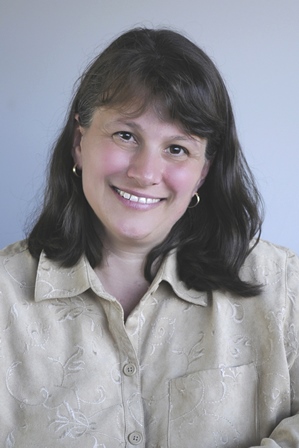Study addressed ways to make rural school curricula work
Tuesday, April 23, 2019

A dissertation examining a middle-school curriculum that challenged students to identify and solve problems in their community earned UMES English professor Courtney Harned her doctorate a year ago – and national recognition.
The American Educational Research Association early this month honored Harned with its (Special Interest Group’s) “Rural Dissertation of the Year” award at a conference in Canada that attracted educators from around the globe.
Harned, who joined the UMES faculty in 2007, also presented a brief summary of her work to conference attendees.
Her dissertation focused on “Understanding Critically Informed, Place-Conscious Literacy Instruction in a Rural Context.”
Harned identified a local school system and worked with an eighth-grade English teacher to craft a curriculum that met state learning objectives for standardized testing. The goal was to infuse “elements of place to create greater relevance for students and to promote agency in examining critical issues in the community,” she said.
“The most important thing that came out of the study,” Harned said, “was increased agency on the part of students when the de-contextualized curriculum was enhanced with learning activities that reflected the community and their positions within the community.”
“Many rural researchers believe that (a) decontextualized curriculum is not meeting the needs of rural students,” she said, adding “this study shows it is possible to weave (unique) elements of a student’s community into curricula and still meet state learning objectives.”

The middle school followed in Harned’s study has embraced some of her findings to fine-tune – or more accurately – customize instruction with the aim of engaging students in instruction that will support their development as citizens who can shape and re-imagine their communities when they graduate.
Harned was in the first group of graduate students at Salisbury University to earn a doctorate in education where the emphasis was on critical literacy in shaping curriculum and instruction. Judith K. Franzak, her dissertation adviser, suggested she apply for the award.
“Her research was thoughtful and important to our understanding of how literacy curriculum can help students in rural communities, an area often ‘under examined’ in education research,” said Maida Finch of Salisbury University’s Department of Doctoral Studies in Literacy. “She demonstrated a commitment to using research as a tool for improving teaching and learning in her community.”
One committee member praised Harned’s description of a middle-school teacher that “captured the struggle against state mandated testing requirements provides an interesting juxtaposition to what she believes are best teaching practices.”
“While this isn’t unique to a rural setting, (the teacher’s) desire to return to rural, place-based curriculum creates an interesting picture of the rural context,” wrote Catharine Biddle, a professor of educational leadership at the University of Maine. “Reading about the students’ discussion of current social justice issues through a rural lens was also particularly powerful.”
Harned is hopeful the recognition she received from peers might draw attention to tweaking one-size-fits-all standardized course curriculums so they can produce positive results in rural settings.
She received a $300 stipend along with the award, which she in turn used to defray the cost of travel to Toronto.

